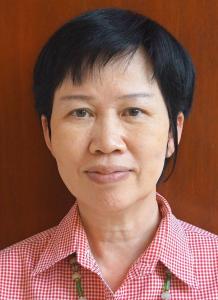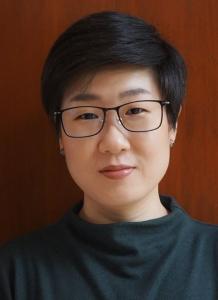รายงานกิจกรรม
Welcome remarks by Mrs. Pornpith Petcharoen, Secretary-General of the Secretariat of the House of Representatives of Thailand, recognized the honor and commitment that Thailand gave to the APEC chairmanship, considering the received attention and acknowledgment across the world and especially in Asia. Opening remarks of Asst. Prof. Dr. Chakkrapan Pornnimit heightened the relevance of APEC to Thailand, particularly stressing the importance of Thai awareness of international cooperation and boosting the economy. Dr. Chakkrapan considered that the priority shifted to the post-COVID-19 world, in which the summit’s theme Open, Connect, Balance became circumscribed by the containment of the virus. This new focus has led to the adoption of the Bangkok Goals on the Bio-Circular-Green (BCG) Economy as the key deliverable under the APEC 2022’s priority of Balance in All Aspects and prompted Thailand to advance the Free Trade Area of the Asia-Pacific (FTAAP).
After these considerations, the moderator Kunjanita Kunjara Na Ayudhya from Nation TV 22 steered the three panelists to ponder both on the successes and limitations of the forum. Assoc. Prof. Dr. Piti Srisangnam, Director of Academic Affairs of the ASEAN Studies Center at Chulalongkorn University, made the first comments regarding APEC and claimed that two aspects should be considered successful. First, as the host, Thailand experienced several achievements, not only the meeting with leaders in November but also throughout the year with the 14 clusters of meetings and their collateral benefits to the acknowledgment of Thai culture and hospitality. The second success was the central claim of Open, Connect, Balance. While the open aspect enabled parties to discuss with others; connect represented the exchange of information to continue and face future challenges; and balance was discussed between people and nature, expressed in the Bangkok Goals. Despite the successes highlighted by Dr. Piti, shortfalls were also a result of the summit since the relationship between public and private sectors faced setbacks, especially in how protests took place.
Mr. Chaturon Chaisang, Former Deputy Prime Minister, Former Minister of Education, and Former Minister of Justice, expanded on the successes and limitations of APEC 2022. While summits are generally motivated by trade and investment, Mr. Chaturon argued that APEC was grounded on the crossroads of global crises that plague the world. Furthermore, while the subject of Open, Connect, Balance is often interpreted from a sustainability angle, it should also have a geopolitical understanding. From this perspective, despite the bright side of the BCG, the model needs to be widened as it still does not touch upon trending issues letting several topics unaddressed. Equally, concerning the protests, the people sector once more criticized the attitude of the government toward protests since it reflects the image of intolerance and human rights infringement abroad. Conversely, the private sector was praised for its proposals in areas such as inflation and food security, considered by Mr. Chaturon as pivotal in the current global juncture.
Ms. Prinat Apirat, Deputy Director-General, Department of International Economic Affairs, Ministry of Foreign Affairs, added to the importance of collaboration between different areas. While considering how the discussions of Open, Connect, Balance were coherent, it is significant to highlight the post-COVID-19 dimensions, in which the world changed, and new priorities emerged. While various topics were discussed, numerous efforts were not reflected in the final document at the end of the year since the meetings should be considered a process and not a final result. At the same time that the concept of BCG was well established and developed by many countries, Ms. Prinat defended that the real challenge started after the 19th of November to make plans tangible. Even though goals were established, no timeframe for their execution was determined yet. Therefore, the challenges and purposes are a continuously underway project, at times left to the work of the UN and COP.
Thus, whereas the establishment of objectives, questions remain on how and by whom the Bangkok Goals could be implemented. On the domestic level, Thailand needs to ensure long-term priorities, including raising awareness across the country. For this, different sectors have to work together, and there is a need to work in chosen relevant areas such as the circular economy and food security. Besides, Ms. Prinat also discussed the rising interest of the average Thai citizen in fields such as BCG and engagement in international affairs.
However, the real change comes with discussions in the international arena. Albeit the partnership with the Asian countries matured, dating back to the last APEC in Bangkok in 1996, this alliance is paramount to building bridges and working in the continuity with international fora. Dr. Piti emphasizes how these decisions, especially regarding BCG, are relevant also beyond the region, for the UN, as expressed in the COP, and for the EU, regarding the European green deals and the net zero project. These cooperations lead to opportunities for further discussions and supporting projects such as the visa agreement with partners, such as the USA and Canada. Furthermore, Mr. Chaturon emphasized the necessity of diversifying partners and not relying solely on the great powers, considering partners such as India and ASEAN to guarantee neutrality and pragmatism, establishing a more constant standing.
Unanimously, the panelists backed the cooperation in international fora as vital to achieve goals and enable exchanges between countries. However, continuity was claimed as the central point in ensuring advances in these dialogues. Thus, although Thailand can profit from exchanging ideas with leaders such as French President Emmanuel Macron, and US Vice-President Kamala Harris, if the cooperation is not sustained, it will be difficult for the goals to move forward.
Despite the successes achieved and stressed by the panelists, there is still a long way to go in order to achieve and organize a better and more inclusive future since several questions remain unanswered. Whether the broad public can identify these advances or how Thailand can build a more sustainable and assertive soft power in the international arena is still at stake.













